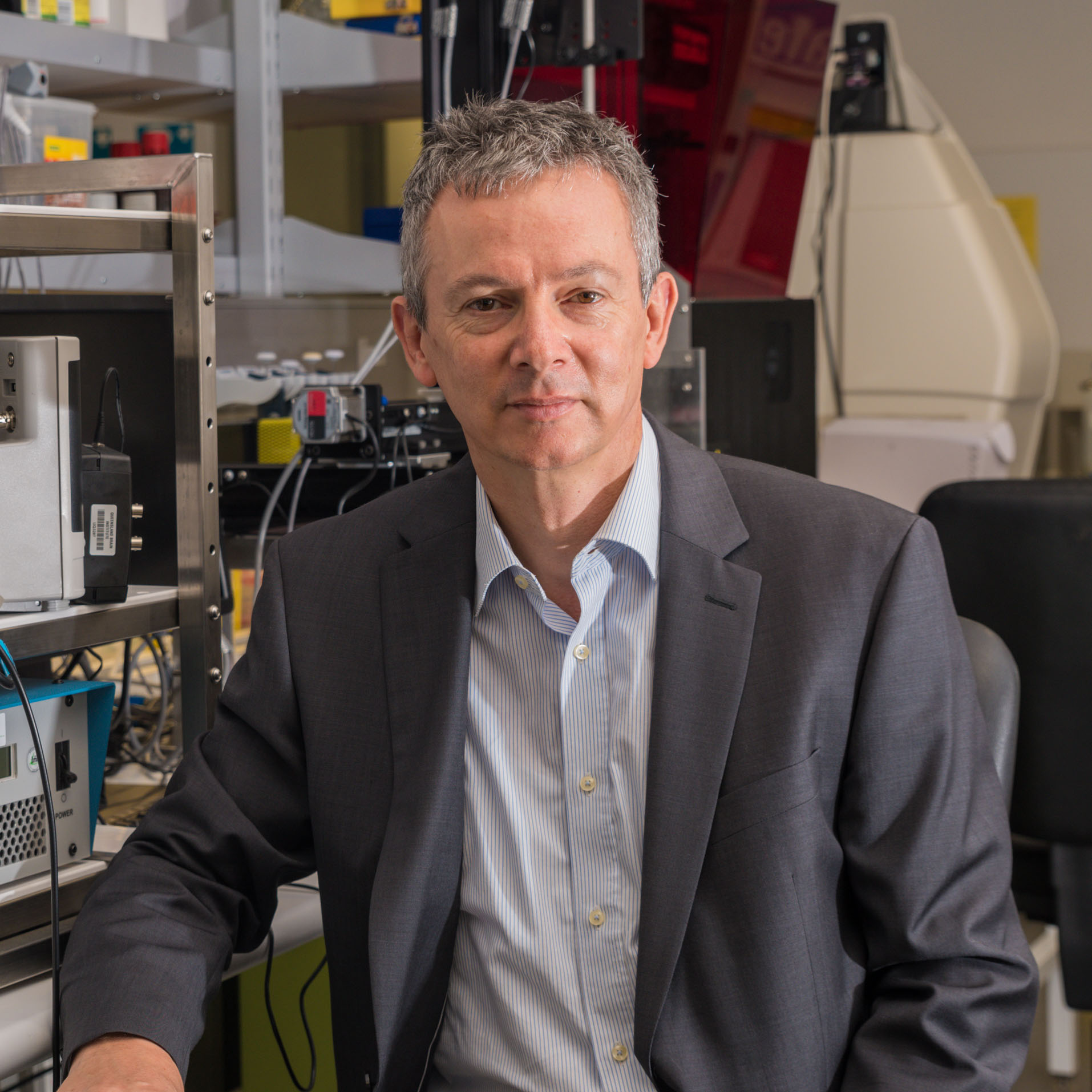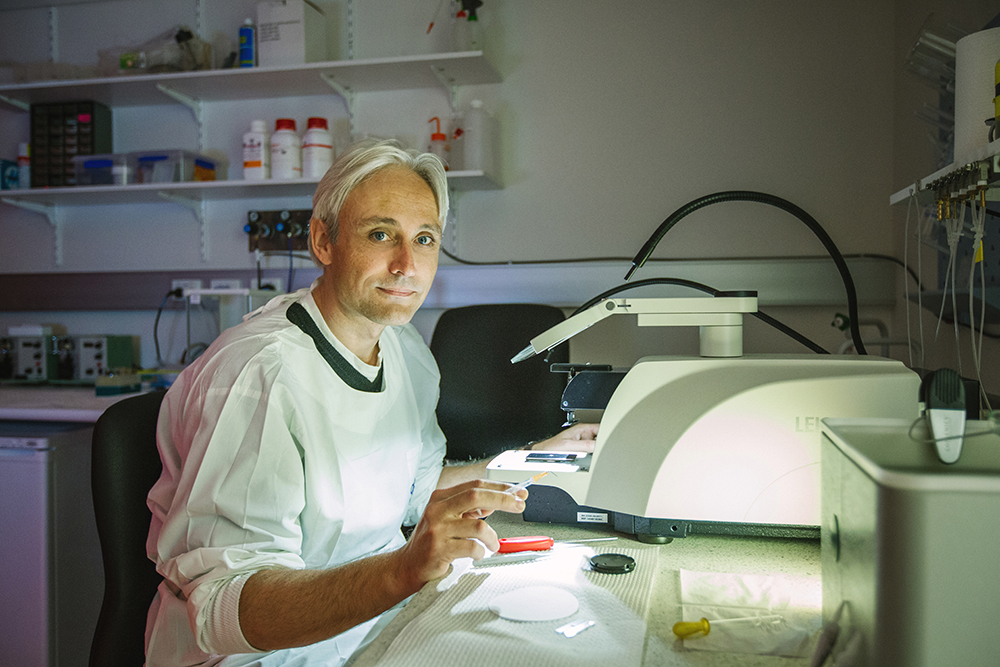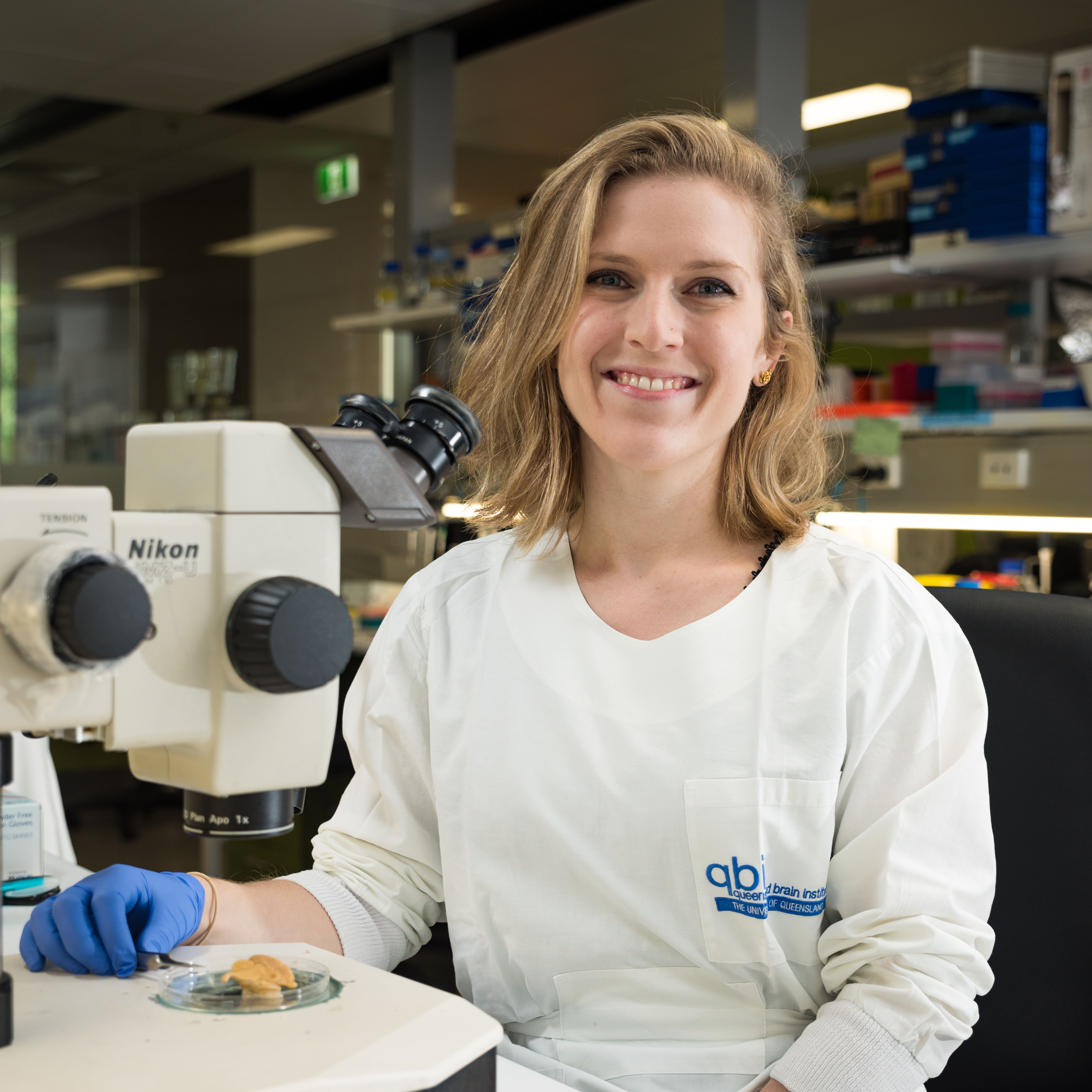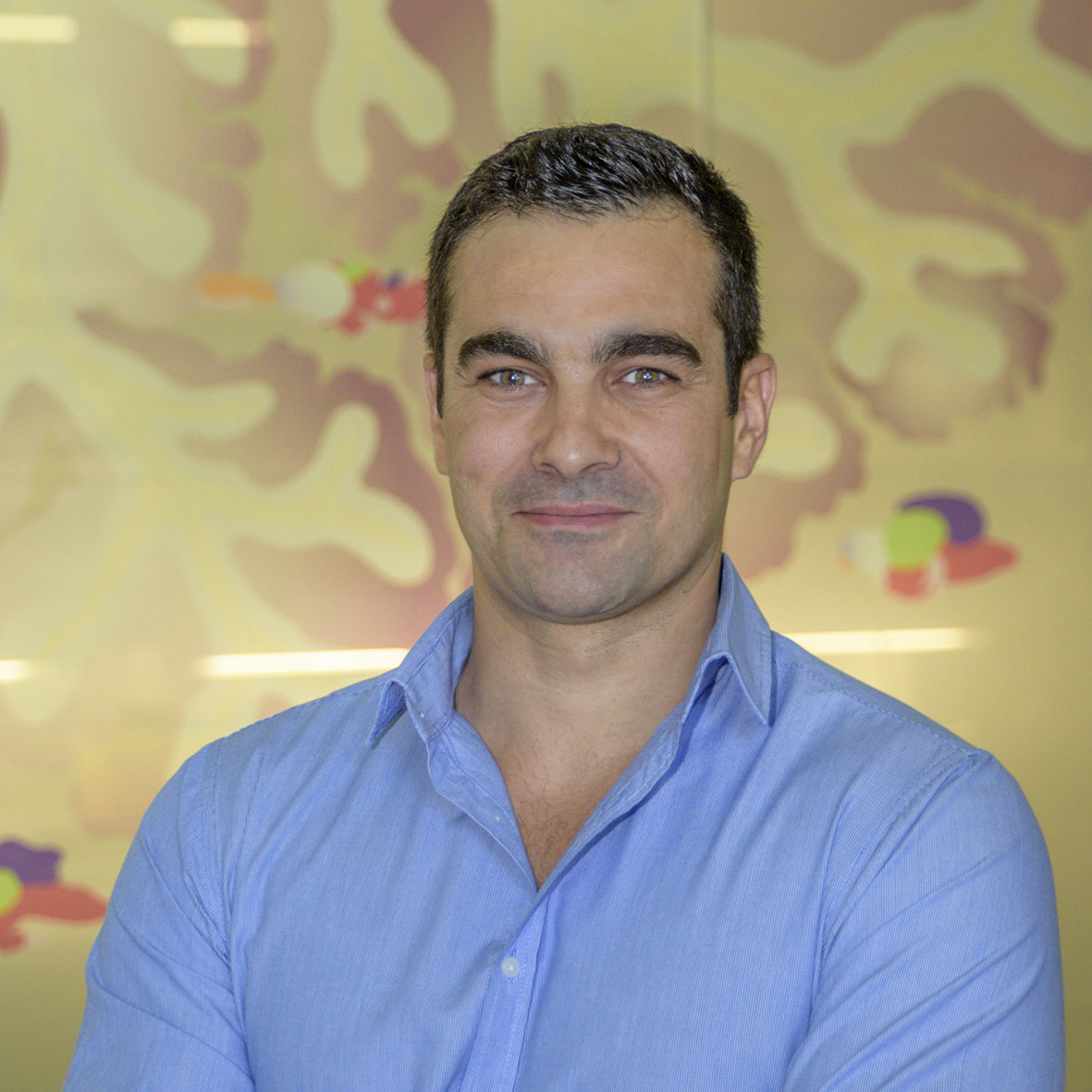Federal Minister for Health Greg Hunt MP visited The University of Queensland today to announce more than $440 million in NHMRC funding for Australian researchers, which included $5.7 million to the Queensland Brain Institute.
Four investigator grants were awarded to Queensland Brain Institute researchers, and another three to joint QBI researchers, to further drive discovery research.
“This is a $59 million investment and 46 projects for Queensland, and here at the University of Queensland, a $29 million investment in 26 projects,” Minister Hunt said.
“I’d like to thank and congratulate all our medical researchers—today is your day, but this day is about giving you the chance to save lives and protect lives.”
UQ Vice-Chancellor and President Professor Peter Høj said 26 UQ projects were successful in securing the competitive research funding.
“I’m particularly excited to see the spread of researchers who were successful, including Professor Naomi Wray and Professor Jennifer Stow – who are internationally recognised female scientists and leaders in their fields – each awarded more than $2 million in funding,” Professor Høj said.
Researchers who received funding

Professor Jürgen Götz combines biochemistry with microscopy to study the proteins behind Alzheimer's disease and other dementias.
“The brain is the last frontier, in terms of understanding how it operates under disease conditions, and in normal functioning. My laboratory works in both spaces and this strategy allows us to develop treatments,” Professor Götz said.
This funding will support our investigations into how three major enzymes, that have been linked to dementia, interact in neurons and cause their degeneration.
Professor Götz is also researching how ultrasound can be used to deliver drugs past the blood-brain barrier. The next steps are to further investigate key barrier proteins and how they impact the opening and closing of the blood-brain barrier.
With this multi-pronged approach, the NHMRC grant ensures that Professor Götz can continue his work towards understanding the cellular underpinnings of dementia and develop new treatments.

Professor Stephen Williams studies how information is processed in nerve cell circuits and relates this to the control of behaviour and brain function.
“All operations of the brain are executed by the activation of these neuronal circuits, but how these circuits function is still a mystery,” Professor Williams said.
“Understanding how neuronal circuits work will pave the way to treat and prevent brain disorders—it is one of the most fundamental challenges of the 21st century.”
“My vision for the next five years is to dissect how neuronal circuits operate and how the circuits are disturbed in disease”.
Recognised by the NHMRC, Professor Williams will now have the funding to build capacity in his team, using state-of-the-art electrophysiological and optical recording techniques to solve this puzzle.

Dr Laura Fenlon’s research focuses on connections in the brain— how they develop, and what happens when they are lost or never formed at all.
“Many neurodevelopmental disorders such as autism and schizophrenia involve disruptions in brain connections, but there is increasing evidence that humans with such disorders can reroute these pathways during development,” Dr Fenlon said.
“The brain and nervous system has an amazing ability to remodel in response to new information—neuroplasticity may allow us to acquire new skills, retain memories, and recover from brain injury.”
With NHMRC funding, Dr Fenlon plans to investigate the capacity of the brain for neuroplasticity during different stages of brain development.
My research will help us understand many conditions in which brain circuitry is disrupted, including developmental malformations and also how the brain could recover after surgeries, stroke, dementias or traumatic injury,” Dr Fenlon said.
“This may ultimately contribute to the development of treatments to improve neurological function in patients with brain malformations or injury.”

Dr Jean Giacomotto's work lies at the interface of basic research and drug discovery.
He uses animal research models, such as the zebrafish, to study the role of genes associated with neurological and mental disorders. At the same time, he is developing new drug discovery technologies coupled to his zebrafish models to search for compounds that would be beneficial for patients.
“NHMRC funding of this project will specifically help to better understand how genes that have been recently associated with either motor neurone disease (MND) or schizophrenia, impact the function and health of neurons. Importantly, our work will also help to better understand how the brain develops and maintain healthy axons and synapses, key structures of brain cells.” Dr Giacomotto said.
“The support from the NHMRC will also help me build an innovative chemical genetic platform that will help us gain a better understanding of human neurobiology and find better treatments for patients affected by brain disorders”.
See Dr Giacomotto’s work focusing on motor neurone disease, and mental disorders in collaboration with Prof Bryan Mowry.
Professor Naomi Wray, jointly working at QBI and the Institute for Molecular Bioscience has a vision to advance understanding of common complex diseases using quantitative genomics, and further funding from the NHMRC will allow her to continue her program of research.
Support from the NHMRC for the next five years will allow Professor Grant Montgomery to continue his pursuit of genetic risk factors for reproductive diseases, such as endometriosis and uterine fibroids. Professor Montgomery shares his time between QBI and the Institute for Molecular Bioscience.
Professor Geoff Faulkner has a joint appointment with QBI and the Faculty of Medicine has been funded to continue his work into somatic genome mosaicism in human brain function and neurodegeneration.



